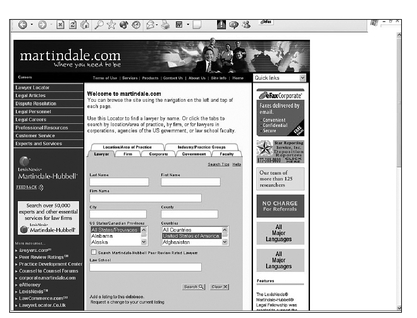Chapter 16
The Closing Itself
In This Chapter
• Preparing for settlement
• What all you need to sign
• What if you change your mind?
• Tips for minimizing problems
Woohoo! You’ve almost made it. All your hard work has paid off—you have a buyer who’s agreed to purchase your home for a price that meets your needs, they’ve been approved for a mortgage, and you’re ready to seal the deal at closing.
The closing, settlement, or close of escrow, which are different words used to describe the same event, is the final step in the sale of your home. It’s where you and the buyer both sign on the dotted line—lots of them—indicating your agreement to transfer ownership of your home. Although it may have taken you weeks or months to get to this important day, the closing itself will likely take less than a couple of hours.
The focus of this chapter is to prepare you for closing and give you a behind-the-scenes look at ways to keep any problems to a minimum.
What Happens in What Order and Why
The countdown to closing begins as soon as a Purchase and Sale Agreement is signed by both you and the buyer. These signatures put into motion a lot of work that needs to be completed within the next 30 to 60 days, on average. Although a closing can be extended at the request of either the buyer or seller, it is difficult to shorten the process to less than a month—there is just too much paperwork to be shuffled.
For starters, the buyer will schedule a few inspections of the property. Depending on the type and location of the home, these can include:
• Structural inspection
• Well certification and septic inspection
• Radon testing
• Pest inspection
Depending on the results of these inspections, the buyer will either agree to the sale as planned, or he will ask that repairs and corrections be made prior to closing. And in that case, you can either agree to make the repairs or decline, in which case, the buyer will probably—but not always—decide not to buy.
Several reports are ordered, some by the buyer and others by the buyer’s lender, such as:
• A credit report on the buyer—to qualify for the mortgage.
• Verification of the buyer’s employment and assets—to qualify for the mortgage.

Sales Snafu
Make sure you bring your driver’s license or passport to the closing as a form of picture identification. Some documents require a notary public to verify your signature. Unless you have proof of your identity on hand, you may not be able to close.
• Title report on your home—to confirm there are no encumbrances, or claims, to the property by outside parties.
• Appraisal of the property—to estimate the current market value as part of the mortgage approval process. The lender wants to be sure the amount of the mortgage is no more than a certain percentage of the home’s value—in some cases, 80 percent is the limit, in others, as much as 90 to 95 percent. This appraisal provides that part of the equation.
The buyer’s lender will also check on the current mortgage on your home, assuming you have one, and any liens against the property.
More for Your Attorney
After the buyer’s financing has been officially approved, the lender will notify you or your attorney. While selling your home without an agent is a smart way to save a lot of money, you really need an attorney to oversee all the paperwork that is being generated.
Many attorneys charge a flat fee to handle a simple real estate closing for a seller, and it would be nearly impossible to avoid a major screw-up without one. Take some time to ask for referrals for a good real estate attorney to represent you. Of course, it’s better if you have one lined up from the start, so the closing isn’t delayed, but if you don’t, take a day or two now to hire one.
Some of the best ways to find an attorney include:
• Asking real estate agents for some recommendations
• Asking your banker for suggestions
• Asking friends and neighbors who have recently moved
• Asking any attorney friends and colleagues for names
• Using Google to identify local real estate attorneys
After you’ve identified the attorney who will coordinate the closing, you can direct her to schedule needed meetings and to oversee the processing of the paperwork. The buyer’s attorney and mortgage lender are doing most of the work as far as paper generation goes, but your attorney needs to check in to make sure no problems have arisen that will interfere with your planned closing date.
If you hire an attorney, it’s her job to handle the number crunching. On top of the cost of your home, minus the earnest money deposit the buyer made (which is generally one percent of the purchase price), your attorney will calculate:
• Prorated taxes. Most likely you’ve only lived in your home part of the year, so you only owe taxes for that period.
• Prorated utilities, such as water and sewer bills
• Prorated condo or homeowners association fees
• Prorated rental income, if the property has rental units 

Tools of the Trade
A mortgage payoff is the current amount you owe on your mortgage as of the closing date, plus any interest or administrative charges for the closing. If the closing date is close to your mortgage payment due date, you may not be required to make a payment that month. Check with your attorney to see what they advise.
• Real estate agent commissions, if any, such as if you agreed to pay the buyer’s broker’s fee
• Your mortgage payoff amount, to determine how much money you will receive at closing or how much you still owe your lender
• Transfer taxes, which counties charge when real estate is sold
• Any additional closing costs, such as your attorney’s fee, the lender’s attorney’s fee, title fees, title insurance costs, and recording fees
Fortunately, your attorney will do 99 percent of the work required to be ready for closing.
FSBO Facts
Because property and school taxes are billed in advance, you’ve prepaid for the upcoming year. If you don’t end up living in the home for the full year, you’re entitled to a credit for that unused time, essentially. A prorated amount means you are only charged for the time you spent in the home. The buyer will effectively reimburse you for the taxes you’ve already paid at closing.
Where to Hold a Closing and Who Has to Be There
Although a closing can occur anywhere, it frequently takes place at the buyer’s or seller’s attorney’s office. Other possible locations for all the paper signing are the real estate agent’s office, the lender’s office, the escrow company’s office, or the title insurance company’s office.
At a “round table closing,” the buyer and seller complete their documentation simultaneously. At an “escrow closing,” they sign on the dotted line at different times.
When the buyer and seller sign their documents at different times, the closing is called an escrow closing because the seller frequently does not receive a check for the proceeds of the sale on the same day. However, at a round table closing, where all parties are seated at the table for settlement, the seller receives the sales proceeds at the end of the meeting.
Although most states require the buyer attend the closing in person, the seller generally has the option to complete the required paperwork in advance. In addition to the buyer, the seller’s attorney, if they have one, is also present. In some cases, the buyer’s attorney will attend, as well as the real estate agent, and even the lender’s attorney.
Don’t be overwhelmed if you have a full house at the closing. The process is the same and it should still only take a couple of hours at most until you’re done.
Power of Attorney Pluses
Anyone who is listed on your home’s title and deed needs to be available to sign the closing documents—if not, the closing will have to be rescheduled and paperwork reissued.
Make sure in advance that everyone will be there at the appointed day, or make arrangements for a Special Power of Attorney, which permits someone to sign on the missing person’s behalf. This can be an issue if you own the property with someone else, such as a parent, sibling, or ex-spouse, who doesn’t live in the area.

Tools of the Trade
In cases where an individual is not available, or unable, to sign legal paperwork, a document called a Special Power of Attorney can be filed, which grants permission to one individual to sign on behalf of another. That permission to represent the other individual in legal dealings is limited to specific circumstances, but makes it possible for out-of-town sellers, for instance, to sign closing documents from afar and mail them in for the closing.
With a power of attorney completed and filed, you can be sunning yourself in Tahiti during the closing while your attorney or someone else representing you fills in. That’s the major advantage—convenience.
And other than the hassle of filing the appropriate paperwork and having it notarized, there are few downsides. The person to whom you’ve given power of attorney is your substitute document signer, but nothing more. And their signatory power is limited to this particular transaction; they can’t go out and buy a new car, for example, making you liable.
Grab a Pen! Documents You’ll Be Signing and Why
Although every transaction is different and may require a few other documents, as the seller, the primary documents you’ll be signing at closing include:
• The settlement statement
• A bill of sale for the transfer of ownership of any personal property with the real estate sale
• The contract to purchase
• The deed, which transfers the property’s title from you to the buyer
• An affidavit of title, which states you have the right to sell the property
• An affidavit regarding mechanic’s liens, in which you state you have not had any work done on the property that could result in a mechanic’s lien, such as a major construction project, and that you are the sole person, or people, who own it
construction project, and that you are the sole person, or people, who own it

Selling Smarts
Call your utility company ahead of time to arrange having the electricity turned off on the day you move out so you’re not charged when you’re not living there. If it’s warm enough, you can also have your gas or oil supply shut off, but if it’s winter, don’t—just request a final reading. Keep the heat going so the pipes don’t freeze and burst.
• A certificate of occupancy, which demonstrates the home is approved for occupancy
• Any documents related to the payoff of any existing mortgage(s)
• A closing document spelling out all the various costs and fees associated with the transaction, indicating you were informed of the costs involved beforehand
• Name affidavits in which you certify that you are the owner of the home
The buyer will be signing similar documents, as well as financing-related paperwork, which includes:
• Settlement statement
• Compliance agreement
• Mortgage/Deed of Trust
• Note
• Truth in Lending statement
• Survey affidavit
• Final Good Faith Estimate
• Interest statement
• Notice of right to cancel
• Name affidavits
• Occupancy affidavit
• IRS forms
In a nutshell, your papers have to do with transferring ownership of the property, while the buyer’s pile of documents involves receiving ownership and possession of the home, as well as a promise to repay any financing he has arranged.
The Deed
In exchange for the agreed-upon purchase price, you will sign over title—or ownership—of your home. This is called a deed. The deed specifies exactly what your property includes, as described by a series of measurements. For instance, the deed details how long and wide your lot is, where it is in relation to other main roads, and more, which can come in handy if you, or the buyer, ever have a dispute over property lines.
Payoff Information—the Mortgage, Note, Etc.
The buyer will be signing a note promising to repay any financing he has arranged. In some states, the buyer signs a mortgage, which is a document pledging the property as collateral for the loan; in other states, the same document is called a Deed of Trust.
In addition to the statement showing your mortgage payoff and any closing expenses you are responsible for paying, as the seller, you will also receive a statement from your attorney regarding credits you are entitled to. These may include:
• Prepaid taxes, including school, property, and any other local assessments
• Prepaid utilities, or a credit for oil left in the oil tank
• Prepaid homeowners insurance
• Prepaid condo or association fees, if you live in a co-op, townhouse, or condominium that has such charges
Be sure and check over these figures carefully to make sure you’re receiving all the credits you’re entitled to. Mistakes don’t happen often, but they do happen.
Can You Change Your Mind?
The short answer to whether you can change your mind is, “yes.” Certainly, if you are having any doubts about your interest in selling your home, speak up immediately. The sooner you reveal your misgivings, the better for everyone. In most states, you also have a three-day grace period during which you can back out of the deal, even if the paperwork has all been signed. However, keep in mind that backing out of the deal could come at a cost.
For instance, if you decide after receiving an offer that you don’t want to sell, you can simply reject the offer. You may still be liable to a real estate agent for his work in locating a buyer, if you’ve previously agreed to pay such fees, but you won’t be required to sell your home.
However, if you sign a Purchase and Sale Agreement and the closing date is fast approaching, it will be a bit more difficult—meaning costly—to back out. The buyer may also have grounds to sue you for any expenses he incurred while preparing to buy your home, as well as for the inconvenience of breaking a contract.
And if you arrive at closing and suddenly decide you don’t want to sell, you may or may not be able to get out of the contract, depending on which state you are in. Even if you are permitted to cancel the contract on the spot, reimbursing the buyer for their expenses may make it cost prohibitive to walk away. At that point, they could sue for all of their closing expenses, which can be tens of thousands of dollars, as well as moving and relocation expenses they incurred. Not to mention hardship. Yes, you may be allowed to cancel the contract, but you may not be able to afford to, quite frankly.
Dealing With Snafus
With so many individual steps, and schedules needing coordination for the final closing, problems and miscommunication can sometimes arise. To reduce the chance of a delay or hiccup, stay in regular contact with your attorney to be sure everything is moving along smoothly. She is your contact with the other parties involved.
Because your paperwork is a much lighter load than the buyer’s, problems are more likely to arise on their end, not yours. For instance, they may have trouble qualifying for the mortgage they need, which would slow down or cancel the contract—which is another reason to require buyers be “pre-approved” for a mortgage before you accept their offer.
Or perhaps the closing date on the sale of the buyer’s home gets pushed back, forcing your closing to be rescheduled so they will have the proceeds available to afford to buy your house.
In some rare instances, problems can come up at closing, for instance, if documents have been prepared with the wrong information. If you find this, by all means, do not sign the contracts. Have them corrected before you agree to sign them.
In 99.9 percent of these cases, the problem can be resolved. The closing date gets rescheduled for the next day, or a couple days later. In other cases, if a closing gets pushed up so early that you’re not ready to move out, you can ask for a lease-back clause from the buyer that permits you to remain in your home for a certain period of time for which you credit them at closing. There is almost always a solution that will permit the sale to occur, but turn to your attorney for guidance on what makes the most sense for you and what best protects your rights.
Online Closing Resources
An attorney is a valuable advisor in the home sale process, so check all your options before settling on one. These directories are great starting points for locating a lawyer in your area who specializes in real estate transactions:
• www.lawyers.com. Another online directory of national attorneys you can search. You’ll want to follow up with your own research to determine their reputation and areas of expertise.
• www.martindale.com. This online directory from Martindale-Hubbell is a great resource for finding local attorneys to handle your closing (see the following figure).
• www.ForSaleByOwner.com/attorneys. You can find a directory of local real estate attorneys who frequently work with FSBO sellers here.
Search this national database by name, geographic location, or specialty to find potential real estate attorneys qualified to assist you.

The Least You Need to Know
• After you and the buyer have signed a Purchase and Sale Agreement, the closing process begins and will take about 30 to 45 days to complete. The closing itself is usually a two-hour meeting in which your hand will cramp from the number of times you have to sign your name.
• To avoid problems with closing on time, stay in close contact with your attorney, who will be monitoring the situation closely.
• You and the buyer may sign the paperwork separately, or you may sign them in the presence of one another. The only real difference is that unless you sign them together, you generally won’t walk out of the closing with a check for the sale proceeds in your hand.
• Immediately following the closing, all the signed documents are recorded at your local courthouse, and ownership of your home transfers to the buyer.
• If either you or the buyer decides part-way through the process to back out, you can halt the closing proceedings, but it will be expensive. The buyer will lose his deposit and maybe more, and you may open yourself up to a lawsuit.
..................Content has been hidden....................
You can't read the all page of ebook, please click here login for view all page.
